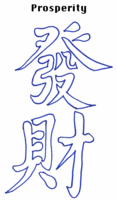Hear no evil, Speak no evil, Sino evil?

Well, we knew this was going to be a big topic and a long learning curve. See prior posts http://guambatstew.blogspot.com/2005/08/bulls-in-china-shop.html, http://guambatstew.blogspot.com/2005/08/where-east-beats-west.html, etc.
First, to add more to the discussion about the economic consequences of the wakening dragon, consider:

http://www.inc.com/magazine/20050301/china.html: "Fourteen things every entrepreneur should know about the capitalist explosion heading our way. China's miracle economy can come at you in a lot of ways, from all directions."
http://www.rgemonitor.com/blog/setser/94004/: "Regular readers know that I am convinced that the pace of Chinese export growth will slow. That is a bit at odds with parts of the conventional wisdom. There is a widespread sense that China is the future of (almost all) manufacturing. However, I just don't see how Chinese exports can keep growing at 30% y/y (or more)"
Then, to add more flavour to the Atlantic Montly article referenced yesterday (http://guambatstew.blogspot.com/2005/08/links.html), sprinkle a bit of the following over your bowl of Guambat Stew:
http://www.cis.org.au/policy/winter05/polwin05-5.htm: "While the United States has been preoccupied with combating terrorism and spreading democracy in the Middle East, China has been busy cultivating new friends and allies across the Asia Pacific region. The booming Chinese economy has led to a new confidence as China finds its international feet and looks for its place in the diplomatic sun. In stark contrast to Washington’s perceived penchant for unilateralism, Beijing has discovered an enthusiasm for multilateralism that is intended to reassure the region of China’s ‘peaceful rise’ and to portray America’s regional alliances as Cold War relics. The United States has underestimated China."

http://www.afa.org/magazine/June2005/0605edit.asp: "Major war with China certainly is not inevitable, and maybe not even likely. However, it would be a serious mistake to give short shrift to the possibility of a very rough ride in years ahead."
 And just what, if anything, does this have to do with Australia? Heaps. For one thing, it will be copping an earful of advice from America:
And just what, if anything, does this have to do with Australia? Heaps. For one thing, it will be copping an earful of advice from America:"I would argue that if history is a guide, that when existing great powers try to accommodate another great power then there is a lot of movement of the tectonic plates," he said. If I were Australian and I was sitting here and I was beginning to feel the tectonic plates move a bit by the ascension of China, the ascension of India, then I think I would opt on the side of 'maybe I'll just keep this security alliance a while longer', because ultimately that's the guarantor that Australians very much will enjoy their lifestyle."

This is a central insight into how the superpower views itself and its place in the world. It was once the stated aim of the communists to export global revolution. Now, galvanised anew by what George Bush calls "the day of fire", on September 11, 2001, it is the policy of the US. It seeks to export a democratic revolution.
In the same polling, Australians were asked about threats to security. In reply, 57 per cent rated US foreign policy as a threat. Strikingly, this is the same proportion who rated Islamic fundamentalism, another revolutionary doctrine, as a threat.
The dilemma for the Australian Government is plain. Australia, one of the
 staunchest US allies, feels itself obliged to support every American venture, to join every war, as a fundamental responsibility under the ANZUS alliance.
staunchest US allies, feels itself obliged to support every American venture, to join every war, as a fundamental responsibility under the ANZUS alliance.Yet when the US goes to war in pursuit of its global democratic revolution, Australian public opinion resists. The Australian Government is in the middle of this divergence between where America is leading and where the Australian people want to follow."
Labels: Not so pacific Pacific


0 Comments:
Post a Comment
<< Home